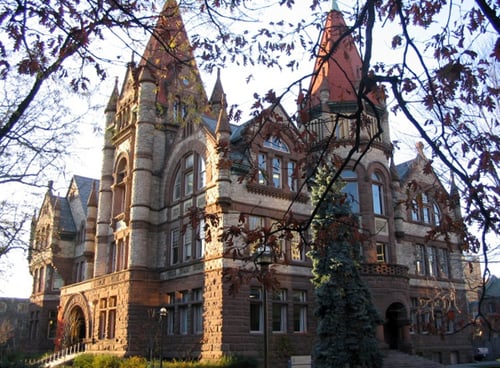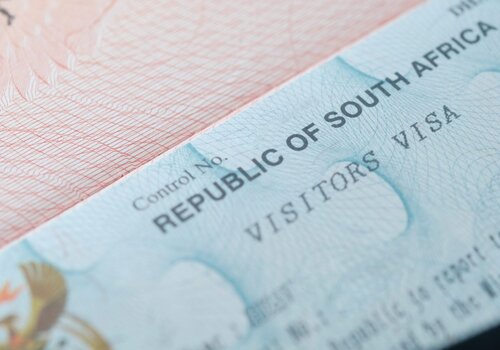Do you want to move to Canada permanently but aren’t sure about the process? This guide will outline the steps you need to take to obtain Canadian permanent residency. Basically, It will teach how to apply for a Canada PR Visa on your own.
However, you must remember a few things when applying for Canadian permanent residency. You must be able to support yourself financially, meet health and language requirements, and prove that you have ties to Canada. Once you have met these requirements, the next step is to submit an application.
This post will go over these and many more important steps. There is no doubt that obtaining Canadian permanent residency will be a rewarding experience when you follow the steps below. Let’s get started!
Table of Contents
- 1 Who is a Canadian Permanent Resident?
- 2 What is the step by step process for Canada Permanent Residency?
- 2.0.1 #Step 1: Determine Your Eligibility
- 2.0.2 #Step 2: Obtain Language Test Results
- 2.0.3 #Step 3: Obtain an Educational Credential Assessment (ECA)
- 2.0.4 #Step 4: Create an Express Entry Profile
- 2.0.5 #Step 5: Wait for an Invitation to Apply (ITA)
- 2.0.6 #Step 6: Apply for Canadian Permanent Residency
- 2.0.7 #Step 7: Go for your Biometrics
- 2.0.8 #Step 8: Wait for the processing of your application
- 2.0.9 #Step 9: Receive your COPR (PR approval)
- 2.1 Wrapping Up
Who is a Canadian Permanent Resident?
According to Canada.ca, a Canadian permanent resident is someone who has been granted permanent resident status after moving to Canada but is not a citizen of Canada. Permanent residents are foreign nationals who have a Canadian PR Card. This PR card can be used to show that you hold permanent resident status in Canada. If you travel outside Canada, you must present your card and passport while returning to the country at the port of entry.
One crucial aspect that needs more emphasis is that you can apply for Canadian citizenship status after some years as a PR status holder. You enjoy health care insurance like any Canadian citizen and can work, study, and live anywhere in Canada.
But, before applying for a Canadian permanent residency in Nigeria, ensure you have all the documents stated by the Immigration Refugee and Citizenship Canada (IRCC). Let’s find out what the requirements are below.
What are the requirements for Canada PR from Nigeria?
If you are applying for Canadian permanent residency from Nigeria, you must provide several documents to complete your application. Some of the required documents include the following:
- Proof of Language Proficiency – You must prove your proficiency in the English language by taking an approved language test, such as International English Language Testing System (IELTS) or The Canadian English Language Proficiency Index Program (CELPIP).
- Educational Credential Assessment (ECA)– If you apply through the Federal Skilled Workers Program, you must provide an ECA report for your foreign educational credentials from a designated organization. This report will show that your education is equivalent to Canadian education standards.
- Proof of Funds – If applicable, you must show that you have enough money to support yourself and your family when you arrive in Canada. See the cost of relocating to Canada here.
- Educational Qualifications – Educational degrees or certificates, diploma degrees, sponsor certificates you have acquired so far in Nigeria. As well as original copies and officially translated documents for your certificates.
- Age Proof – Proof of your age through a birth certificate.
- Employment document – For those who have a job offer from Nigeria. You must provide your employer’s reference letter or payslip to support your application.
- Police Clearance Certificate – You must obtain a police clearance certificate from the Nigerian Police Force and from any country where you have lived for six months or more in the last ten years.
- Medical Exam – You will need to undergo a medical exam by a panel physician approved by the Canadian government to ensure that you are in good health.
- Passport and Travel Documents – You must also provide a valid passport and other travel documents, such as birth and marriage certificates.
Canada Immigration Programs for PR
If you wish to immigrate to Canada and obtain a permanent resident visa, there are many immigration pathways or routes which have their own criteria and requirements for immigration. Canada operates more than One hundred immigration programs, but the most recommended and successful ones for Nigerians include the following;
- Express Entry Program,
- Provincial Nominee Programs (PNPs),
- Family Sponsorship
- Study Permits
- and others.
It’s important to know that your selection for a permanent resident card is based on the total points you receive based on your profile requirements, such as age, language skills, education, work experience, and other criteria. Now, let’s check out the general application process for Canadian permanent residency below.
What is the step by step process for Canada Permanent Residency?
As we all know, the Canadian Permanent Resident Visa is a highly sought-after document that grants the holder the right to live and work in Canada on a permanent basis.
However, obtaining this visa can be challenging for some Nigerians, but it doesn’t have to be if you follow the right information and guidance.
As a matter of fact, you can complete the process independently without using the services of an immigration agent or consultant. We have outlined a step-by-step process for obtaining a Canadian Permanent Resident Visa from Nigeria.
Here we go!
#Step 1: Determine Your Eligibility
First and foremost, before you begin the process of applying for Canadian permanent residency, it is essential to determine whether you are eligible to do so. Canada operates many immigration programs, each with its own eligibility criteria. You will need to review the requirements for each program and determine which one(s) you are eligible for. We recommend you take a simulation test on the Canadian government immigration website here to determine eligibility.
In addition, claiming an occupation or work history at the National Occupation Classification (NOC) is crucial. If you are immigrating through the Express Entry route (i.e, Federal Skilled Worker Program), you must show that work experience and occupation on the NOC. It does not matter if you changed jobs at some point; what matters is that your jobs are in the same NOC and still count for you. Find your Canada NOC code here.
#Step 2: Obtain Language Test Results
If you are eligible based on the eligibility test above, the next step is registering and obtaining a language test result. Everyone has to take a language proficiency test to immigrate to Canada. The two most common language tests for immigration purposes are the International English Language Testing System (IELTS) and the Canadian English Language Proficiency Index Program (CELPIP).
You must achieve a minimum score in the four language categories (reading, writing, speaking, and listening) to be eligible for Canadian permanent residency. The required minimum scores vary depending on the immigration program you are applying for.
As a matter of emphasis, we recommend you give yourself three or four months to prepare for the test adequately. This is your best shot, as everything else may not be under your control. For instance, you can not change your age or the number of work experiences, but you can determine the outcome of your language test result. Here is the official website to register for IELTS with the British Council. The cost required to register for IELTS in Nigeria is ₦107,500.
#Step 3: Obtain an Educational Credential Assessment (ECA)
While preparing for your IELTS in Nigeria, it is suggested that you also use that time to evaluate your academic certificates. The IRCC has a list of certified and authorized organizations that can verify your degree and equate it to Canadian standards. The most commonly authorized body is the World Education Service (WES).
WES converts your educational credentials from Nigeria or other countries where you studied into Canadian equivalents. It describes each certificate, diploma, or degree you have earned and its academic equivalency in Canada. This process is known as Educational Credential Assessment (ECA).
Additionally, it is important to note that you can evaluate your most recent or all of your degrees. Whichever way you want it evaluated, it all costs the same amount. Currently, the cost of WES credential evaluation in Nigeria is CAD 220 (₦126,314), and the Courier fee is CAD 85 (₦48,800). Learn how to pay for your WES from Nigeria here.
#Step 4: Create an Express Entry Profile
After you have obtained your IELTS test results and have evaluated your academic certificates with WES, it is time to create an online Express Entry profile.
You must provide information about your education, work experience, language proficiency, and other details. Once you have submitted your profile, you will be placed in a pool of candidates applying for Canadian permanent residency. You will be given a CRS score based on your profile, and candidates with the highest scores are invited to apply for permanent residency through regular draws.
We recommend that you complete this profile within Sixty (60) days of opening it and make sure that you provide consistent and genuine information. And as soon as you complete and confirm your Express Entry Profile, you can go ahead and submit it. You have officially joined the Express Entry pool. One more thing! You must follow the Express Entry weekly or bi-weekly draws to see if you have been nominated.
#Step 5: Wait for an Invitation to Apply (ITA)
As earlier stated above, the IRCC conduct Express Entry draws every two weeks. These draws are made from the pool of submitted Express Entry profiles.
Basically, you will be entered into the Express Entry pool once you submit your online profile and meet the minimum comprehensive ranking system (CRS) score requirement. The IRCC conducts Express Entry draws every two weeks, and the candidates with the highest CRS scores receive ITAs. You will have 90 days to submit your PR application if you receive an ITA.
Note that the IRCC determines the exact CRS cut-off scores. For instance, if they need 3,000 candidates from a draw, they pick the highest 3,000 candidates in the pool for that date, and the 3000th person becomes the cut-off score. However, if there’s a tie-break for the 3000th candidate, they use other factors, such as time of submission, to break the tie. However, if you do not get selected from the pool after 12 months, your profile will expire, and you will need to open a new one.
#Step 6: Apply for Canadian Permanent Residency
Congratulations! If selected from the Express Entry pool, you must now provide and submit all your documents.
Normally, the IRCC will request candidates to pay a certain amount for their application. The application fee costs CAD550 (₦315,782), and the permanent resident fee costs CAD490 (₦281,337). If you do not successfully get Permanent residency, the PR fee will be refunded.
In addition, if you have a spouse, you will pay same amount above. But for each dependent child, you will pay the sum of CAD150 (₦86,118). Please note that you only have sixty (60) days to apply for Canadian permanent residency.
#Step 7: Go for your Biometrics
After you register and pay for your permanent residency, you will be required at some point to provide biometric information (fingerprints and a photo), which can be done at a local embassy in Nigeria or VFS. You must pay a fee for this service which costs CAD85 (₦48,800) per person.
#Step 8: Wait for the processing of your application
The next step after you submit your application and complete the biometrics, you must wait for it to be processed. The processing time can vary depending on the immigration program you are applying through and the volume of applications being processed. For some candidates, it comes as early as 2 months, while for others as much as 6 months. You can check the status of your application online through your IRCC account.
#Step 9: Receive your COPR (PR approval)
Congratulations! If your application is approved. Next, you will receive a Confirmation of Permanent Residence (COPR) and a visa in your passport. You will need to travel to Canada within a specified period of time (usually six months) to complete the landing process. This involves presenting your COPR and visa to a border services officer, who will confirm your permanent resident status and issue you a permanent resident card. Welcome to Canada!
Wrapping Up
I have provided a step-by-step process for obtaining a Canadian permanent resident visa from Nigeria. Again, this is a general overview of the process, and specific requirements may vary. It is always best to consult official government sources for the most up-to-date information. Feel free to share this information with your friends, and i hope this helps. Good luck!

Emmanuel Peter is the founder of Naijajapa.com. Experience gained in the Study abroad and Immigration industry since 2017. A graduate of International Relations from ABU Zaria.









Am an health worker by profession,can i see a company that can sponsor me
Yes you can! If you have link to a friend in Canada who knows a company that can accept you.